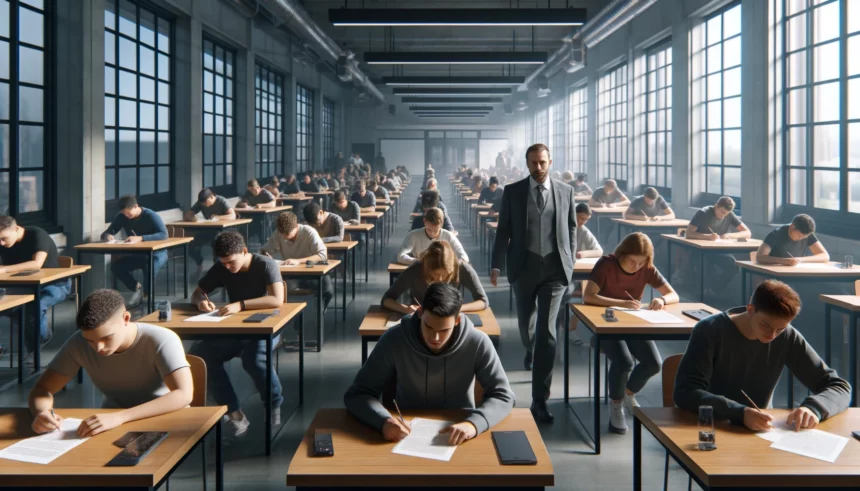As artificial intelligence (AI) tools like ChatGPT become more common in academic settings, universities are confronting a significant increase in students using these technologies to cheat on assignments. Recent conversations with educators highlight the severity of this issue, which may be more extensive than publicly acknowledged.
One British academic shared their startling experience, noting an alarming trend where numerous students were expelled for submitting AI-generated essays, leading to significant reductions in some course enrollments. These students often cannot explain unfamiliar terms or data sources found in their assignments, indicating they didn’t write the essays themselves.
This cheating dilemma is more than just an academic issue. It raises concerns about the quality of graduates entering professional fields where they may lack the necessary skills, potentially impacting sectors like healthcare or defense.
Detection of AI-assisted cheating is only part of the challenge. University administrators sometimes hesitate to address these issues, especially when involving international students who contribute substantial tuition fees. This reluctance can make it risky for educators to report cheating, as they might face career repercussions.
The prevalence of AI in education sparked widespread concern after ChatGPT’s launch in November 2022. However, the impact on academic integrity is still being assessed. According to Turnitin, a plagiarism detection software provider, around 22 million papers were submitted in the past year with signs of AI assistance. This represents about 11% of all papers reviewed, with 3% heavily relying on AI. These figures suggest that the use of AI in academic writing has remained stable compared to previous assessments.
While some educators are exploring AI for non-cheating purposes like research assistance or lesson planning, the potential for misuse remains a pressing issue. In response, some universities are increasing face-to-face assessments to better detect and discourage cheating.
The core goal of higher education, as emphasized by educators, is to foster independent thinking and critical analysis skills, not just the ability to repeat information. As AI tools become more embedded in academic life, the challenge will be ensuring they enhance learning without undermining the educational process.
















